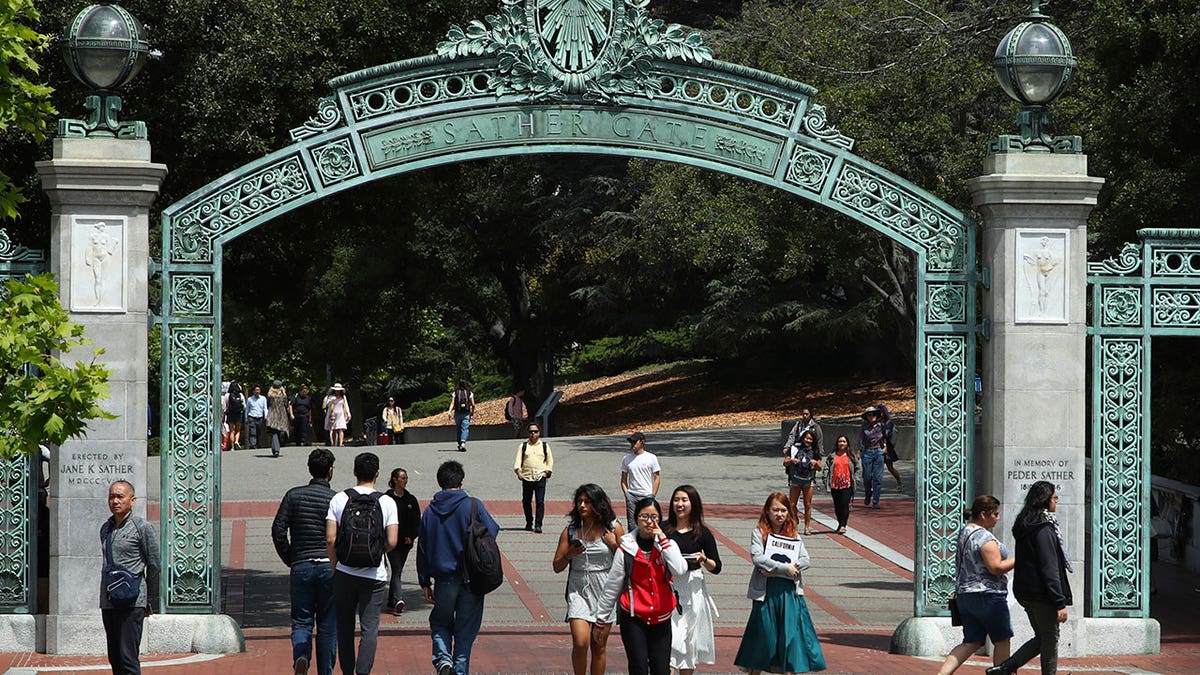Study finds universities liberalize students
Former professor Peter Boghossian calls universities 'indoctrination mills.'
The University of California system is seeing a staggering increase in the number of students who identify as either transgender or non-binary.
According to data released in January, the number of undergraduate students identifying as non-binary across UC system campuses rose by over 2,000 from 2019 to 2023.
The San Francisco Chronicle noted that last year, the UC changed its data collection processes and consolidated the terms "non-binary," "genderqueer" and "gender non-conforming" into a singular "non-binary category."
"Even taking into account that shift, the number and percentage of students identifying as trans or non-binary increased significantly," the paper noted.
The percentage of students identifying as gender non-conforming, non-binary or transgender has also tripled over the last four years (.06% in 2019 to 1.9% in 2023). Most of the students fell under the non-binary category, while transgender men and women were identified as the smallest demographic in 2023, at .2% and .1%, respectively.

A pedestrian walks by a sign in front of the U.C. Berkeley campus on July 22, 2020, in Berkeley, California. ((Photo by Justin Sullivan/Getty Images))
UC Berkeley reported a major uptick in the number of students identified as transgender or gender non-conforming, rising from .2% in 2019 up to 1.8% in 2023.
The university's Director of LGBTQ Advancement and Equity, Em Huang, said a systemwide rule allowing students to use a name of their choice and gender identity on nearly all official documents may have made the school more appealing to transgender and non-binary students.
The university is also in the process of converting many gendered bathroom stalls into gender-neutral bathrooms.
UC Santa Cruz had the largest non-binary and transgender undergraduate population in 2023 (4% and 1.1.%).
The data on UC schools comes after the results of the 2022 U.S. Transgender Survey Early Insights report, the largest survey of transgender people in the United States, was released.

Students walk past Sather Gate on the University of California at Berkeley campus in Berkeley, Calif. (AP Photo/Ben Margot, File)
Ninety-four percent of respondents who had lived at least part of their life in a different gender than their birth sex reported they were "a lot more satisfied" or "a little more satisfied" with the quality of their life.
Only 1% of respondents said they were "a little less satisfied" with their life and only 2% said they were "a lot less satisfied."
However, 39% of those surveyed said they had been harassed on social media because of their gender identity in the last year. Thirty percent also reported verbal harassment over the same period.
CLICK HERE TO GET THE FOX NEWS APP
Sixty-two percent of respondents admitted they were "very uncomfortable" or "somewhat uncomfortable" talking to police or asking for help when they experienced issues related to their gender.
The new report also determined that the unemployment rate among those surveyed was almost five times the U.S. national average (-18%).





















